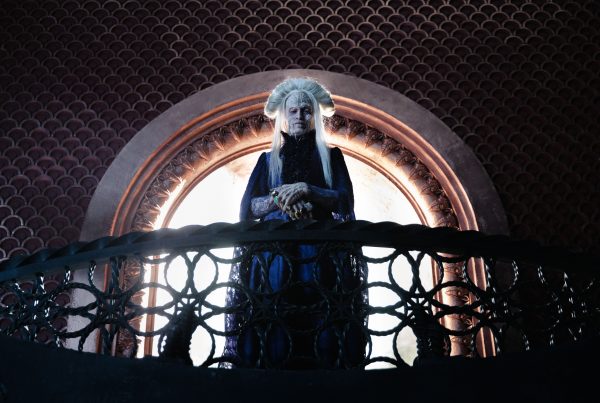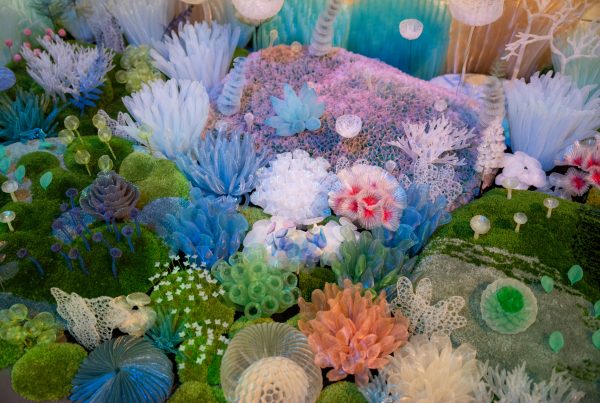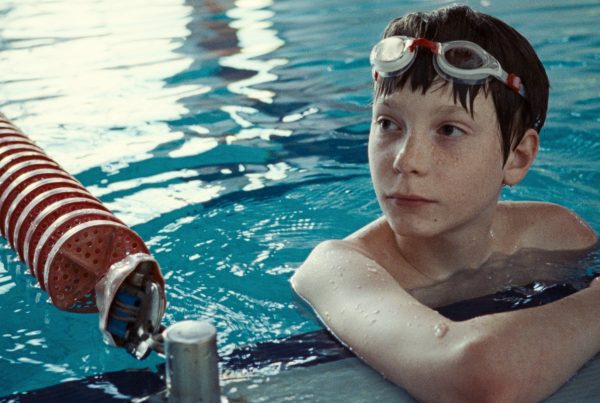 It was Thursday afternoon in mid-March in a hotel overlooking South Beach, and Lawrence Kasdan was home again. Well, sort of. The veteran movie director (“The Big Chill,” “Grand Canyon”) was raised in West Virginia, but he was born in Miami in 1949, and he’s visited his birthplace countless times since.
It was Thursday afternoon in mid-March in a hotel overlooking South Beach, and Lawrence Kasdan was home again. Well, sort of. The veteran movie director (“The Big Chill,” “Grand Canyon”) was raised in West Virginia, but he was born in Miami in 1949, and he’s visited his birthplace countless times since.
This latest time, two months ago, Kasdan had a particular purpose to visit our sunny beaches: He was there to support the South Florida premiere of his new film “Darling Companion” at the Miami International Film Festival. The film, which opens in area theaters on Friday, takes its inspiration from the director’s own life, and his quest to find a beloved lost dog.
In the movie, Kevin Kline is the careless, workaholic husband to Diane Keaton’s sensitive dog lover, and the ensemble dramedy takes place over a tumultuous weekend in the Rockies following their daughter’s wedding. After Kline loses “Freeway,” his wife’s Collie mix, he and his eccentric extended family traipse through rain and cold to track him down – with help, perhaps, from a beautiful mystic.
Kasdan was joined in Miami in March by none other than Kevin Kline, along with Kasdan’s wife Meg, who co-wrote “Darling Companion” with her husband. They were gracious enough to field a few questions from a roundtable that included myself, Ruben Rosario and Steven Mesa.
Lawrence, what accounts for the nine-year gap between your last movie, “Dreamcatcher,” and “Darling Companion?”
I tried to do other things. A lot of things stopped and started. I was going to do an adaptation of a Richard Russo novel called “The Risk Pool.” Tom Hanks was going to be in it. I wrote it, and we spent a lot of time trying to get the money, and it fell apart. That happens with a lot of things. I wrote an original that I decided not to do after we were far along in the casting. I decided I didn’t want to do it. The kind of movies I make are harder to get made now than they used to be. But it’s not just for me. Hollywood isn’t supporting this kind of movie, so you have to get independent money, and no matter how small, it’s hard to raise.
I was really lucky. For the first 10 movies, I had a lot of freedom, and sometimes, with that much rope, I would hang myself, and sometimes it worked out great. All those experiences were really gratifying, and this one was too. The difference is really logistical in that you have so little money and such a short time to shoot. And you have to ask everyone to enter it as a partner with you, because they’re not making that much money. In a studio movie, sometimes they’re doing it for the money. With this kind of movie, nobody’s doing it for the money, because there is no money.
How long was the shoot?
We shot 30 days, and there was a lot to do in that time. It was all outdoors, for the most part, and the weather was unpredictable. But it was totally fun. I had worked with some great cameramen, but now I had to find someone new and younger and cheaper, and I saw “Winter’s Bone” and loved the way it looked. I met Michael McDonough, and we’ve become really good friends. I hope he shoots my next movie.
Lawrence, you and Kevin have done so many movies together, and you’re about the same age? Is he your muse? Maybe your on-screen surrogate?
I have to now. I didn’t want to. For years, I resisted the idea. But it’s weird, and I have to say, it’s kind of heartening that you have a collaboration that lasts for 30 years, and you still can talk to the person. And you still like him. And he’s been able to do so many different things with me. He was a great cowboy, he was great on a horse with the guns … he was a good Frenchman and a good Italian. He can do anything. I’ve been lucky.
Kevin, was there a temptation to play your character in Darling Companion as more of a jerk? I think you strike a really good balance between being truly caring for your family and just being mired in your work. When you were first conceiving the character, was it more like, I want to play a jerk, let’s do it!
Larry has always written characters with the complexity of real-life human beings – with flaws. Compare him to the guy in “French Kiss” – he has some issues. The guy in “Grand Canyon” … they’re real people. This guy, yeah, he could have just come off as a jerk. I knew going into it that he had to be a jerk, but you had to have sympathy for him, and you had to have empathy for him. So then I just didn’t think about it. I trusted the writing and direction and just was the jerk that I am. I hoped that was the right formula.
I want to talk about one of my favorite scenes in the movie: the dislocated shoulder sequence, in the rain, done in one take. It looked very convincing. Kevin, how do you feel in general about shooting scenes in inclement weather?
Kevin: I like it. The more inclement, the better. There’s a speech in Shakespeare – “Sweet are the uses of adversity” – all this stuff about how you feel like you’re a human being if you can feel the icy fang of winter. Diane says, “I do not like acting in the cold.” Yet she never complained at all.
Lawrence: She was very anxious about the scene. She was going to be wet and cold, but she did what she did. It was very early in the movie, and we were under enormous time pressure, and it’s the turning point in the whole movie. But we shot it very early on. And to have that kind of intense scene and to pull it off in one take … I did other coverage, but my dream was to stay on that one shot for four minutes. It’s the longest shot I’ve ever had. But it can only happen if they are great together.
Kevin, do you approach a role with the same intensity, whether it’s a dramatic role or a comedic role?
There’s some variation from movie to movie, but acting is acting, whether it’s for film or the stage. I’ve been fortunate to have done Shakespeare, classical, modern. It’s all work. It all takes an intense focus. But the answer is no. They’re all different.
It’s hard to think of two movies more different from one another than “The Big Chill” and “Return of the Jedi,” and you wrote them both the same year? And your best movies following that year turned out to be quiet, reflective, adult movies. When you sat down to write those “Star Wars” films, did you still feel that it was your personality coming across on the page?
Absolutely. And it really started with “Raiders of the Lost Ark,” because that was my introduction to the world of George Lucas and Stephen Spielberg. Stephen, George and I really made up that story. I had no expectation of working on the “Star Wars” series, but when I finished “Raiders,” George was in trouble in “Empire [Strikes Back].” The second I gave him “Raiders,” he said, ‘Will you write “Empire?’” I said sure. I think he picked me, and I always felt very at home there, because my favorite movies growing up were always big adventure movies. They were sprawling Westerns, Akira Kurosawa’s biggest movies. Those were my movies. The first “Star Wars” is a Kurosawa film – it’s “The Hidden Fortress.” I love all those things, and in “Silverado” I tried to show the fun of wide open spaces.







